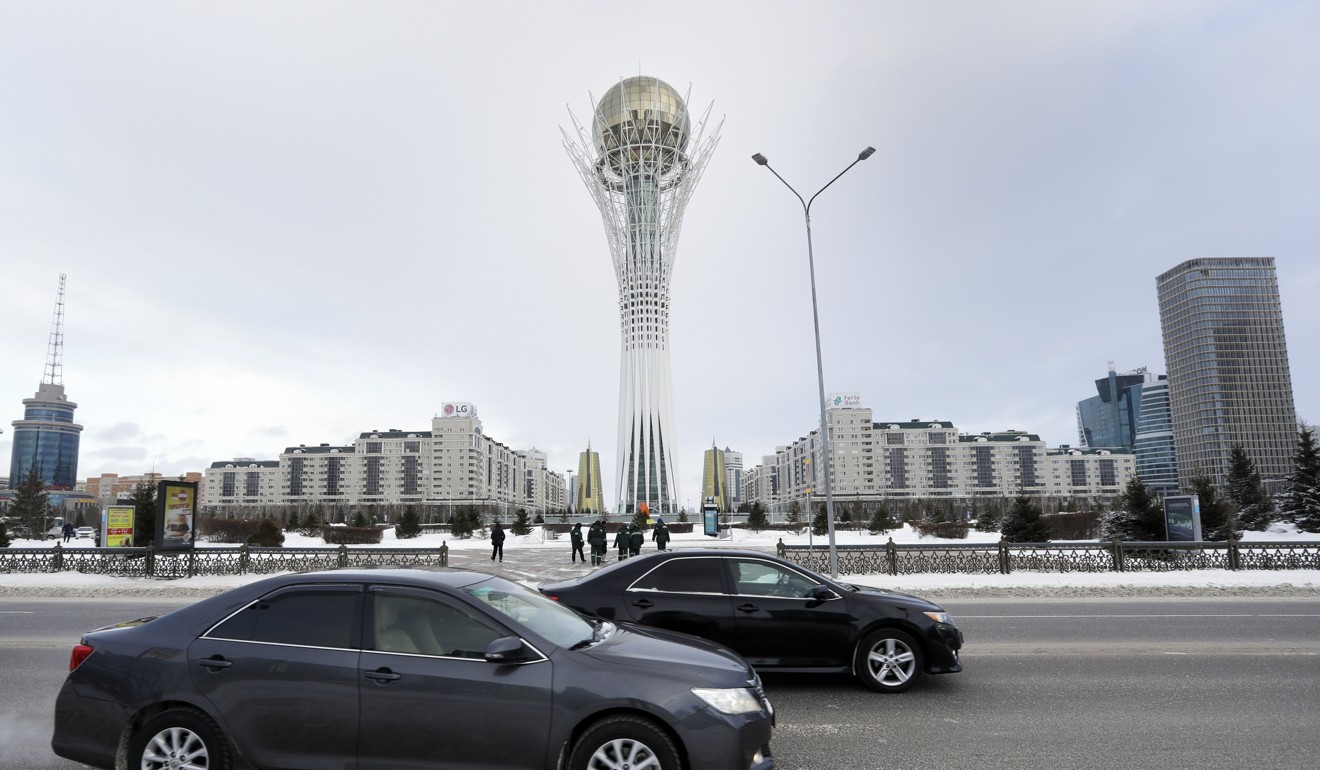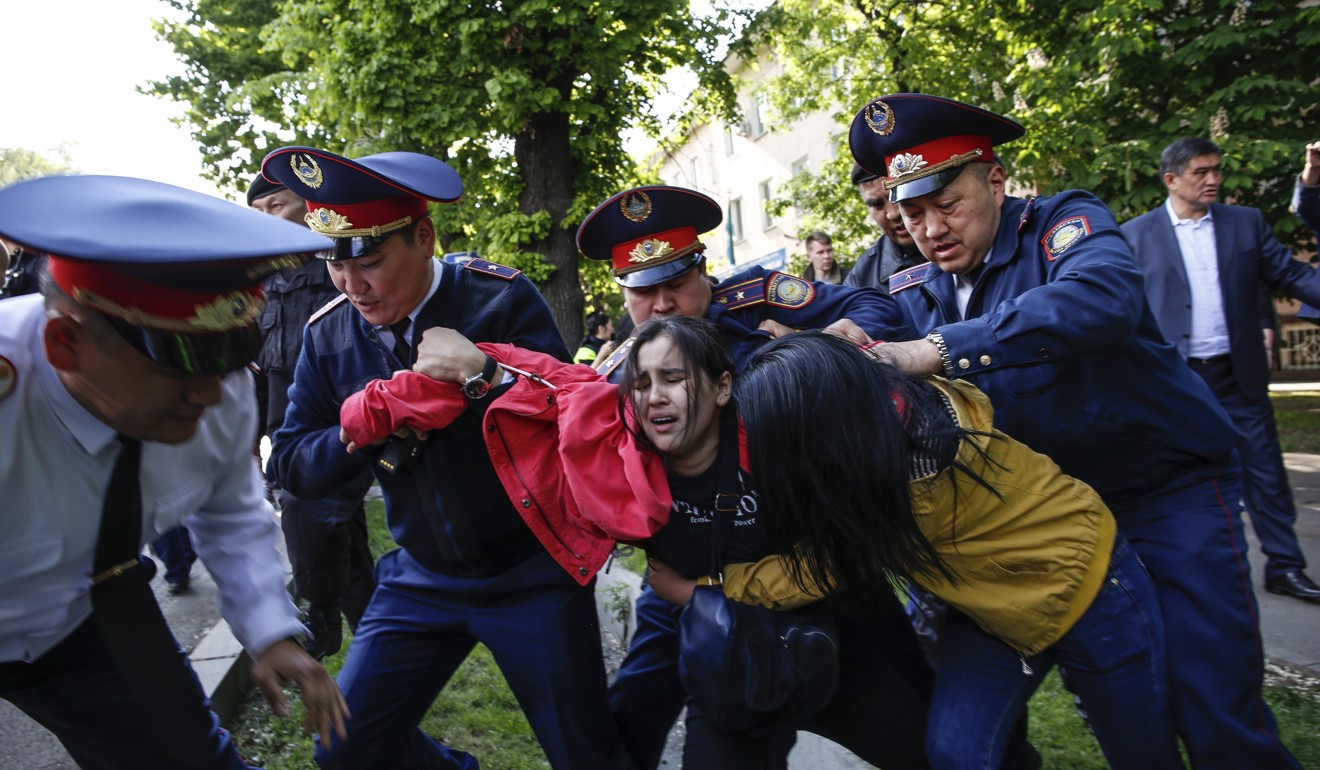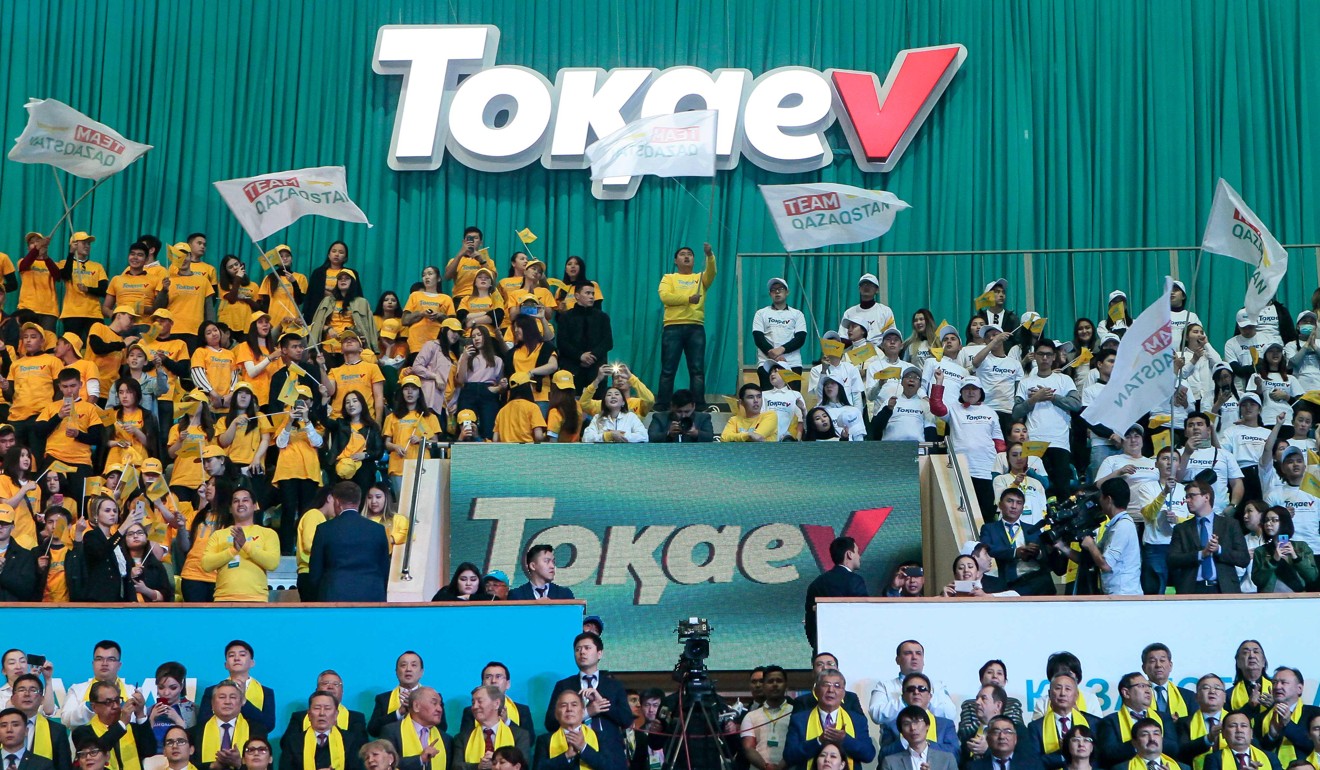
As Kazakhstan heads to the polls, new boss looks a bit like old boss
- Kassym-Jomart Tokayev, interim president, looks likely to be confirmed in the job after being hand-picked for the post by former leader Nursultan Nazarbayev
- There are no opposition parties in the Kazakh parliament and Western observers have never recognised elections in the country as free and fair

For the first time in almost 30 years, Kazakhstan will elect a new president on Sunday. But former leader Nursultan Nazarbayev’s influence is unlikely to end, with his hand-picked successor’s victory all but assured.
The 78-year-old Nazarbayev had been president of Kazakhstan since the country gained independence from the Soviet Union in 1991 – until his shock resignation in March that left former speaker of the senate Kassym-Jomart Tokayev in charge.
After being sworn-in as interim president, Tokayev demonstrated his loyalty to Nazarbayev by leading the move to rename the capital, Astana, as Nur-Sultan – without any public consultation. Then, in April, the 66-year-old called a snap election “to remove any uncertainty” about the handover of power.
He faces six other candidates in Sunday’s polls, though none is seen as a serious challenger. Such a managed succession has prompted a rare surge in protests by activists angered by what they see as a lack of democracy and genuine choice in the elections.

Nazarbayev has also been careful to retain key powers for himself. He is still head of the national security council and remains leader of the ruling Nur Otan party, of which Tokayev is a member. The ex-president also took personal control of the oil-rich nation’s sovereign wealth fund last month and has been named “Yelbasy”, or head of the nation.
He insists he won’t overshadow Tokayev in office, telling campaign officials that there’s “only one president in the country, we won’t allow any dual authority” at a meeting of the ruling party on May 25. “We’ll all help the president,” he added.
At least 40,000 people have signed a petition protesting against the capital’s renaming and some campaigners have even called this weekend’s election illegitimate, citing the lack of time that other candidates were given to prepare.
Nazarbayev’s decades in power saw an oil-fuelled economic boom that drowned out complaints about human rights abuses and a lack of media freedom.
But a precipitous downturn in the last five years, brought about by a fall in global oil prices and an economic slump in neighbouring Russia, has fuelled popular resentment against the regime.
“People in Kazakhstan have to sacrifice their freedom to fight for their rights to choose and vote. Restricting the freedom of ‘disobedient’ citizens is the main practice of the Kazakhstan government,” said Dana Zhanayeva, a civil rights activist from the western city of Aktobe.
Public protests are rare in the tightly controlled, mostly Muslim nation where social networks and online messengers are often shut down for hours on end. However, there have been a few small protest rallies since Nazarbayev’s resignation and his opponents plan to hold one on election day.
Police clashed with demonstrators calling for a boycott of the vote during street protests last month. On May 6, Aslan Sagutdinov was detained for protesting in the northwestern city of Uralsk. He was holding a blank poster, signifying the country’s lack of freedom of speech.

Zhanayeva says she was threatened with expulsion from university and arrest after she published an open letter to president of the European Council, Donald Tusk, earlier this year highlighting human rights abuses and political persecution in the country.
Yerlan Sairov, a political scientist from the central Kazakh city of Karaganda, said some people were considering boycotting the election “as they believe that it won’t be fair and honest”.
Their trust in the government “has been exhausted”, he said. Yet he still believes “most of the people will go to the polls and vote”.
“For the first time in history a female candidate is running for the presidency. The very first TV debates were held which can be seen as democratisation and liberalisation of the political system,” he said.
Kazakhstan’s Central Election Commission has promised that the polls will be fair and transparent. Still, it predicts an unprecedented turnout – with Tokayev forecast to win 72.7 per cent of the vote.
“Citizens don’t see the meaning of going to the polls thinking that the results are already known,” said Zhanayeva, the activist.
Ahead of Sunday’s polls a new movement called “Wake up, Kazakhstan” has been formed to push for democratic reforms. Its founders were activists who had previously been detained for joining peaceful protests and denouncing the election as illegitimate on social media.
“I have woken up in a country that changed the name of the capital city in a single day without asking citizens,” said actor and activist Anuar Nurpeisov, who has appeared in a video titled “I have woken up”, focusing on social injustice, censorship and environmental pollution.
Viewed tens of thousands of times, it marks a new stage in Kazakh youth activism, rejecting the country’s stage-managed transition of power.
The video’s title is a reference to poems called “Wake up, Kazakh!”, written by Kazakh poet Mirzhakyp Dulatov in the early 20th century when the country was still part of the Russian empire.
Nurpeisov, who came up with the idea for the video, said he took inspiration from cultural and political figures who had struggled for national independence.
“My Kazakh language teacher at school always told me that these men laid the foundations for the independence that we have today,” Nurpeisov said.
“But this independence isn’t complete yet, because we are still slaves to the current system.”
In a sign of growing activism, one student at a top university in Nur-Sultan even recently wore a cap daubed with the slogan “Wake up!” at her graduation ceremony – attended by Nazarbayev.
“Going back to the same place seems increasingly impossible,” said Timur Nusimbekov, co-founder of Adamdar, a culture and human interest news website based in the former capital and largest city of Almaty.
Yet democracy activists are not the only ones making videos. Pro-government supporters recently filmed their own “I have woken up” video, but this time celebrating the success of Kazakhstan as a state and society.
“It’s time to grow up,” one speaker says. “Don’t make others responsible for your problems,” said another.

An estimated 18 million people will vote in the Central Asian state on Sunday, though some young adults said they will protest by not voting or even defacing ballot papers.
“We will go but we will spoil the ballots,” said Suinbike, an artist, who only wanted to use her first name.
In April, she was held for more than 10 hours by police and fined for filming a protest called “You can’t run from the truth”.
What stayed with her most, she said, was the state of the toilets in the detention facility where she was held.
“I think they were the face of this system. If [police] cannot clear up after themselves, how can they protect us?” she said.
Additional reporting by Bloomberg, Reuters, Associated Press and Agence France-Presse